Philosophical Explanations of Cancer, Biology, Science and Biodiversity

Interview by Richard Marshall
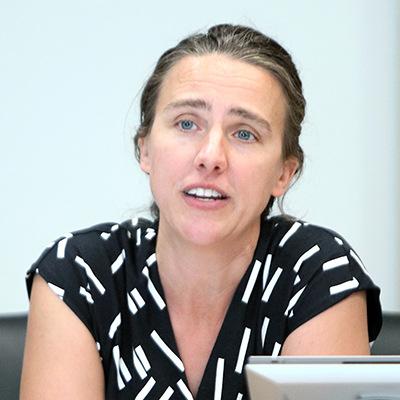
'I do think advocates of the “naturalistic” approach to disease sometimes downplay the role of values in these difficult cases of line-drawing in medicine, with respect to diagnosis, prognosis, and choice of markers of risk. If we wish to respect patient autonomy, however, we should make these risk-benefit trade-offs transparent to them.'
'Sober argued that there are certain claims of science that are both “causal” and “a priori” - this sounds counterintuitive, because we tend to think of causal claims as empirical ones.'
'The short answer is that cancer is a very complex disease; we should not expect a science that investigates this complex disease to come up with a simple, unified theory or model that explains all there is to explain. Cancer is massively heterogeneous - both in its causes and dynamics, as well as in responses to therapy, progression, etc. This is illuminated by the fact that when I tell cancer scientists that I wrote a book on cancer, they typically ask me which kind of cancer (e.g., breast, bone, lung, etc.). No cancer scientist thinks that one should (or could) write a single book on cancer (in general).'
'The issue is not “who” should get screened, but “when,” and “how” or “how often" one should get screened. For instance, routine mammography screening of women starting at age 40 is likely to lead to a lot of false positives, unnecessary follow up, expense, and overdiagnosis and overtreatment.'
'Little boys are at higher risk of cancer than little girls; so there is likely to be some greater vulnerability associated with sex. That said, sex is not just about chromosomes, and gender is not just sex assigned at birth. '
Anya Plutynski has written on the history and philosophy of evolutionary biology and genetics, the role of modeling in science, and scientific explanation. Here she discusses science and natural kinds and cancer, ‘line drawing’, ‘inductive risk’ and ‘underdeterminism’, normativity and naturalism, genetics, context and causality, causal information vs accuracy, values and objectivity, Sober and causal modelling, Rosenberg and Lange, Kuhn and Lakatos, pluralism and pragmatics, whether it's sensible to ask why someone gets cancer, cancer screening issues, gender and sex, and biodiversity.

3:16: What made you become a philosopher?
Anya Plutynski: On the one hand, I suppose it was a series of accidents. On the other hand, I was always interested in philosophy, though I did not recognize my interests as philosophical, initially. In high school, I was drawn to authors like Hesse, Dostoevsky, Tolstoy, and Huxley. In retrospect, what drew me to these authors were how they engaged with philosophical questions about freedom, morality, and the relationship between science and society. I developed a love for history and philosophy of science at University of Chicago, taking classes with J.Z. Smith, Dan Garber, Howard Stein, and Bob Richards. I went to Penn for graduate school initially intending to work on Kant, though I developed doubts about whether I had the motivation to continue, and I took some classes in biology, thinking I might leave philosophy and go to medical school.
However, I started finding my classes in biology philosophically interesting, especially an independent study with Neil Shubin. He and I worked through several important texts in the modern synthesis, just as I was taking a history of biology seminar with Mark Adams in the HSS program, and hearing these issues discussed from the biologist’s perspective, alongside that of a historian like Mark, brought into focus for me how the questions these scientists were debating were not only empirical, but often methodological, and conceptual. I shifted from Kant to history and philosophy of biology. Gary Hatfield supervised my dissertation and supported my pursuing a master’s degree in biology alongside my Ph.D. in philosophy. Gary was a fantastic advisor; he was able to help me synthesize my interests in history, biology, and philosophy of science, and guided me toward communities like ISHPSSB (the International Society for the History, Philosophy and Social Studies of Biology). At my first ISH conference, I felt like I found my academic home.
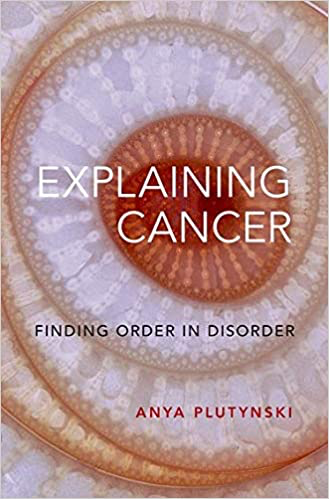
3:16: So you’re interested in issues of the philosophy of science . Interestingly you have expertise in cancer and use this knowledge as a source of many of your ideas regarding these philosophical ideas. So one of the general issues discussed by philosophers of science regards the nature and existence of natural kinds. So you ask this question regarding cancer – you wonder whether cancer counts as one natural kind, or many? You look at two responses: Khalidi thinks it is a natural kind, Lange thinks it is a Kludge! So to start, can you sketch what they argue and where the big disagreement lies and what it tells us about what we mean when we say something is natural and scientific?
AP: Khalidi argues that cancer seems to qualify as a homeostatic property cluster kind, because the “hallmarks of cancer” (or, hallmark features of cancer cells) suggest that there are common “homeostatic mechanisms” that cause cancer cells to cluster, as a kind. Lange argues that diseases are not natural kinds, and so, of course, cancer is a not a natural kind, and not even a unified type of disease. As we are learning more about cancer, it has become clearer that each cancer is the product of a suite of distinctive functional disruptions. I agree with Khalidi that in principle the “hallmarks” are all strongly associated with the behavior of cancer cells, but I also agree with Lange that cancers are not one kind of dysfunctional state, but a motley collection. I think both make good points, and in the book I use the two stances as foils to propose my own view. The philosophical picture of natural kinds - even the modest forms like Boyd’s homeostatic property cluster view - are not well-suited to the aims of medicine and disease classification. It turns out that we can cross-classify different cancers, for different purposes.
By way of a simple example, we can classify all “end stage” cancers as (in a sense) of a kind, in that they all are likely to lead to death in the near future, but each such cancer has a distinctive etiology, and might have arisen in different tissues, organs, etc.. We can also cross classify cancers that arise in different tissues and organs as of a ‘kind’ insofar as they similarly respond to a specific targeted drug. Disease classification in medicine, in other words, is pragmatic, and concerned largely with diagnostic, prognostic, and treatment matters. These are “natural” categories in a sense, because there are empirical (predictive, explanatory) relationships that they track, but there’s not one kind of outcome we’re interested in, in medicine, and different causal pathways are predictive and explanatory of these different outcomes (disease initiation, progression, metastasis, death, response to drugs, etc.). Prioritizing one as the “true” way to carve up disease categories is a choice we make, and not a choice that’s determined by the natural world.
3:16: What are the issues of ‘line drawing’, ‘inductive risk’ and ‘underdeterminism’ involved in trying to understand a disease as a disease?
AP: Early diagnosis saves lives, but not all cancers progress uniformly to metastasis and death. Some remain indolent (or, regress). Cancer screening thus carries a risk of not only false positives, but also, overdiagnosis and overtreatment (the diagnosis and treatment of a condition that would never have led to symptoms or mortality in the lifetime of the patient). Diagnosing cancer thus involves a judgment that risks error and so carries “inductive risk”. (There’s a good deal of uncertainty about how many patients are overdiagnosed and overtreated for cancer - estimates range from less than 1% to as high as 20% for some cancers (prostate, thyroid).)
Diagnosis of cancer also involves "drawing a line" between invasive disease and indolent or slow growing conditions that may or may not lead to invasive cancer. Assessing how and where to draw these lines involves choices, which have various risk-benefit trade-offs. Inductive risk also is at play in assessing the benefits and harms of different screening regimens – whether in choice of modality or choice of cut-off for various biomarkers of disease.
3:16: Are normative judgments inevitably involved in making scientific distinctions and do you think the focus on being naturalistic unhelpful because it encourages value judgments to be less than transparent and distorts the picture of what science is?
AP: In medicine, many distinctions do require a fine balance of risk and benefit, which require value judgments about risk tolerance. This is especially apparent when diagnostic categories are vague or open ended, or the chance of progression of illness given some pathophysiological state is uncertain. The obvious cases are psychiatric diagnoses; whether to call someone’s psychological state a disorder or simply ordinary suffering has been a long standing matter of controversy in some cases. I don’t think being “naturalistic” is unhelpful, if you mean simply attending to empirical evidence! Attention to the total evidence is always ideal in scientific judgment, and in medicine! As long as you are also transparent about the role of values in such judgment, when it comes to patient’s decision making about treatment, then “naturalism” per se is not a problem. However, I do think advocates of the “naturalistic” approach to disease sometimes downplay the role of values in these difficult cases of line-drawing in medicine, with respect to diagnosis, prognosis, and choice of markers of risk. If we wish to respect patient autonomy, however, we should make these risk-benefit trade-offs transparent to them.
3:16: How does your thinking about the role of genetic factors in causing cancer illustrate the role of ‘context dependency’, locality and instability in assigning causal roles to entities in science and help us understand the ‘causal selection’ problem?
AP: This won’t be news to most philosophers of biology (or, for that matter, most cancer scientists!), but one of the central upshots of what I found when looking at the role of genes in cancer is that the effect of a mutation is highly context-dependent. As you might expect (from an evolutionary perspective), there are lots of “back up” mechanisms in place to prevent changes to genes during somatic cell division from yielding disease. So, for instance, we shed skin all the time that carries many “cancer mutations,” but these mutations never yield disease. Whether a mutation acquired during cell division yields disease depends on where and when it comes about, the cell and tissue or organ of origin, factors in the tissue microenvironment, like presence of a blood supply, immune response, age and sex of the patient, and a host of other factors. So, I think that for complex diseases like cancer - the causal selection problem is more often than not a pragmatic matter of sorting out where and how we are likely to effectively intervene. In many cases of complex, multifactorial disease, there may at best be pragmatic reasons to focus on one or another specific cause, causal pathway, or mode of intervention.
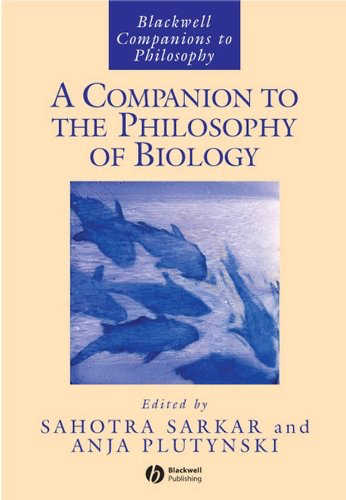
3:16: In setting standards for what we should be using as evidence for a scientific theory, should we care more about what the causal information is for rather than with accuracy – and is this what actually happens?
AP: When we talk about biomedicine, what count as “theories” is a broad swath of things: mere hypotheses, versus robust families of models that can be used to make precise predictions, or yield “how likely” (or “how possibly”) explanations. In other words, these “theories” are built for different purposes, and so they can have be said to have different virtues, insofar as the meet or fail to meet those purposes. Consider classical population genetics: I tend to think of this “theory” as a family of models that are useful (if simplified) ways of representing the causal dynamics of evolutionary change in populations. Likewise for much of the mathematical modeling in cancer: many of these are simplified, idealized models that help us investigate very general questions about cancer’s dynamics. Though in some cases they can be used to make accurate predictions, often they provide at best how “possibly” explanations.
So, questions of “accuracy” are not so central to these theoretical parts of biology and medicine. When it comes to hypotheses like whether this or that drug works (and how well) to reduce mortality in this or that cancer, then of course, predictive accuracy is important, but so too is causal information about how the drug works or is likely to work. So, I tend to think that the answer to this question depends on the kind of “scientific theory” at issue. Modelers often have to make choices that trade off these virtues - causal information v. predictive accuracy - in different ways in different contexts.
3:16: Why don’t you think values that keep coming in to these judgments compromise objectivity?
AP: Helen Longino pointed out that there are different kinds of values in science - what she calls “social” and “epistemic” values. Whether or to what extent such values compromise objectivity depends on how and when they play a role in a scientific inquiry. For instance, trading off generality for accuracy in theoretical modeling is not (necessarily) to compromise “objectivity” – at least objective judgments about likely general patterns or processes, e.g., governing cancer’s dynamics. But, the desire for profits in developing and expanding the application of cancer drugs can certainly compromise objectivity, and lead to poor quality research. Values play a role in establishing methodological standards or setting thresholds for efficacy of drugs. Such values can compromise the quality of research and the likely benefit to cancer patients.
3:16: You’ve looked in the field of cancer studies to illustrate examples of Sober’s ideas regarding causal modeling. First, what are the views regarding ‘causal modelling’ that Sober defends?
AP: Sober has written so many articles and books on causal modeling that I feel unprepared to summarize them! But, I expect you’re thinking of his 2011 paper on “a priori causal truths”, which I discuss in the book?
3:16: That's the one yes.
AP: Ok, well then, in 2011, Sober argued that there are certain claims of science that are both “causal” and “a priori” - this sounds counterintuitive, because we tend to think of causal claims as empirical ones. But, here’s a vivid example from Sober’s paper, an example from theoretical population genetics (the part of evolutionary theory that gives mathematical representations of evolutionary dynamics, of the sort I mentioned above: i.e., “if-then” claims about the causal factors at work in evolving populations): "If A is fitter than B in a population in which no other evolutionary causes are at work, and the traits are perfectly heritable, then A will, in expectation, increase in frequency.” Sober claims that this truth is causal, because it’s about the role of natural selection in a population. However, it is also “a priori” in the following sense: it's not defeasible by empirical observation. Nonetheless, it takes work to demonstrate – he’s not claiming that we know such a thing from birth, or that it’s “obvious” or somehow “true by definition,” but that it’s “necessarily” true, as an “if-then” claim, about any population that meets these (idealized) conditions.
3:16: So why do you think that arguments against this sort of modeling from Rosenberg and Lange don’t work?
AP: To some extent, I think that what’s happening in this dispute is Rosenberg and Lange and Sober are talking past one another. Sober argues that there are true, general claims about causal relationships in ideal conditions, and he gives examples, such as the one above. In the book, I consider several similar claims from cancer researchers, such as this one: “If stem cell renewal were the only driver of cancer incidence, then there should be a linear relationship between stem cell renewal and rate of incidence across different tissues.” Theoretical claims such as this abound in ecology, economics, and evolutionary biology; there’s even a popular jokes about this kind of approach to science: the "imagine a spherical cow” meme. Scientists propose and offer theoretical demonstrations "causal truths” about spherical cows and other imagined states of affairs, because they’re interested in such “if-then” generalizations: generalizations about what would follow, if certain extreme or idealized conditions held. Building fictional models can enable scientists to derive informative truths about both ideal systems, and the real world.
Such truths may be informative not only “despite” their lack of fit to the world, but indeed, exactly because of their lack of fit, as folks like Sober, Wimsatt, and more recently, Sober’s student, Angela Potochnik, have argued. Rosenberg and Lange (2011) argue against Sober that it is absurd to suggest that we can meaningfully speak of such claims as both “a priori” and “causal”. My argument was that denying this would make much of scientific reasoning – modeling and mathematical arguments, yielding scientific understanding, prediction, and explanation – opaque. I suggest that several examples of theoretical explanations in cancer look much like the cases that Sober describes: e.g. “for any system that meets these conditions, it would follow that…” This derivation of general “causal a priori” truths is part of what modelers in science do.
3:16: Kuhn and Lakatos were central to debates in philosophy of science at the end of last century and I see that you are still drawing on them so presumably they still have currency in contemporary philosophy of science debates? Can you sketch for us how their approaches are currently understood, perhaps through looking at the role of ‘puzzles’ within cancer research, as opposed to 'theories', and how this distinction helps frame Lakatosean ‘research programs’?
AP: I first read Kuhn and Lakatos in classes with Stein at Chicago, and I’ve always found them fruitful to return to. Both engaged more directly with scientific practice than many of their contemporaries, in ways still relevant today. Both recognized that science is not simply a matter of theory development or hypothesis testing, but a dynamic interplay between theory, experiment: iterated puzzle solving. Both saw that theoretical commitments are one of several factors driving science; practical limitations and interests shape the questions we ask, and the answers we give. I used Kuhn to frame my last chapter, because he mentions almost in passing that there is no one “solution” to the puzzle of cancer.
I liked this way of thinking of cancer because it seemed more in keeping with how scientists themselves think. Scientists that study cancer do not by and large see cancer as one, unified problem, but as a set of very different puzzles to be solved. I argue in the book that many cancer scientists don’t see their work as advancing and testing “theories,” so much as solving puzzles. I was led to this way of thinking about cancer research also by Joan Fujimura, as well as M. Morange. Both of their work on the history of 20th Century cancer research suggested to me that what launched the focus on cancer genes were specific puzzles that scientists happened to have the right tools to solve.
3:16: Your approach defends a pluarlist and pragmatic approach to scientific research in biomedical research. Could you summarise the key points, what are its advantages and limitations and then say whether you think this sort of approach is relevant only to this area of scientific research or whether in fact this notion of having partial and overlapping models is something that applies in other fields of science as well?
AP: The short answer is that cancer is a very complex disease; we should not expect a science that investigates this complex disease to come up with a simple, unified theory or model that explains all there is to explain. Cancer is massively heterogeneous - both in its causes and dynamics, as well as in responses to therapy, progression, etc. This is illuminated by the fact that when I tell cancer scientists that I wrote a book on cancer, they typically ask me which kind of cancer (e.g., breast, bone, lung, etc.). No cancer scientist thinks that one should (or could) write a single book on cancer (in general). While there are simple theoretical models that help us get a partial picture of cancer, they often represent only a small part of the picture – representing one specific dynamic, causal pathway, or one temporal and spatial scale. So, having a variety of different models and modes of investigation of diseases like cancer - from the molecular on up to the epidemiological - is incredibly important, if we wish to explain the many different patterns, processes, and outcomes involved.
3:16: Given your approach, is it really sensible to ask why a person gets cancer?
AP: You and I both have had cancer so it’s a case of a philosophical question that has a directly personal interest. If you mean, are there some factors that increase the risk of cancer (and, you grant that identifying such risk factors is a satisfactory answer to the “why” question), then yes. In some cases, it is sensible to ask why a person gets cancer. Indeed, I think we can and should assign causal responsibility, whenever someone knowingly exposes people to high doses of carcinogens (e.g., radiation, polluted waterways or air). Licking paint brushes with paint containing radium was “the” cause of mouth and jaw cancers, in the case of the “Radium girls.” Inherited mutations to genes, such as BRCA 1 and 2, increase one’s lifelong risk of developing cancers of the breast and ovaries (and, some other cancers). So, it is possible in some cases to identify a strongly predisposing cause, known to be associated with specific cancers. However, in the vast majority of cases, it’s very difficult to identify a major causal factor; most cancers are due to many indirect causal factors that accumulate over a lifetime. As for the “existential” why question that many of us cancer survivors face, it’s hard to give a satisfying answer. There is a sense in which cancer is a matter of “chance."
3:16: What are the implications for deciding who should get cancer screening from your thinking here? As you ask: In what ways does inductive risk, broadly conceived, come into play in the science behind cancer screening, and mammography screening in particular?
AP: The issue is not “who” should get screened, but “when,” and “how” or “how often" one should get screened. For instance, routine mammography screening of women starting at age 40 is likely to lead to a lot of false positives, unnecessary follow up, expense, and overdiagnosis and overtreatment. This is why the USPSTF argued in 2009 (and again in 2016) that for the vast majority of women, screening starting at 40 was unnecessary. The evidence they reviewed from mammography trials suggested that the largest benefit was to women starting screening at 50 (provided they did not have any family history or known risk factors). Likewise, PSA (prostate specific antigen) tests offered to a lot of men during the 1990s- early 2000s probably led to a lot of overdiagnosis and overtreatment for prostate cancer. Nowadays, the USPSTF recommends starting screening later, and watching to see if PSA numbers rise, rather than routinely treating patients at a certain PSA number cut-off. Of course, this is a decision one should make in consultation with a physician, in light of one’s own risk preferences.
3:16: There’s currently much debate around gender and sex roles: I note that you have written about how fundamental aspects of sex determination can impact the biology of brain tumors and what will need to be done to accommodate this discovery. I wonder whether you think these sorts of consideration need to be considered when we consider how to deflate the importance of gender difference which for some means erasing sex difference as well?
AP: Sex (in terms of not only the sex assigned at birth, but having predominantly XX or XY sex chromosomes, for those born with binary chromosomal compliments) can (and does) influence the relative risk of some cancers. XY folks are more likely, on average, to develop some cancers, not only the obvious ones (prostate cancer), but also bone, brain, and many other cancers, and not only as a matter of higher levels of exposure to risk factors, since the risk is elevated even in children. Little boys are at higher risk of cancer than little girls; so there is likely to be some greater vulnerability associated with sex. That said, sex is not just about chromosomes, and gender is not just sex assigned at birth.
I don’t think gender differences should be deflated or erased altogether. Gender identity can be incredibly important to defining how one sees themselves and their relationships to others. If you mean by “deflate the importance of gender difference,” eliminating gendered differences in salary, leadership roles, or social roles, then, I don’t think the biology has much to do with this. Equitable access to education, employment, and participation in government or leadership roles in society is a matter of justice. Leadership roles, income, or education, for instance, should not be allocated on the basis of either sex or gender. That there is some association of sex with cancer risk does not (at least not obviously) have any direct implications for access to leadership and education among the diversity of genders. There may be one exception: perhaps we should encourage men to retire earlier than women, since they die on average younger than women.
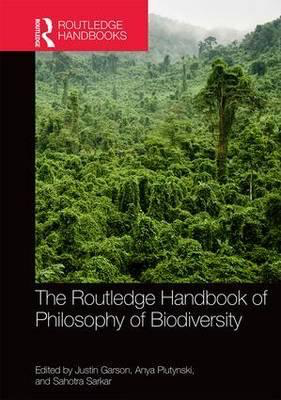
3:16: And of course biodiversity is another area of great significance currently. We’re apparently going through an extinction phase and again causality is a big issue for us as we try and decide what to do. Do your views regarding causality help us understand better this predicament – and perhaps others like climate change?
AP: These are great questions, but I’ve not really thought about how my views on cancer causation shape my thinking about extinction or climate change. In the context of biodiversity conservation, one insight I gained from reading a lot about the history and current practice of efforts at conservation is that attention to local context is incredibly important. Conservation planning cannot occur successfully when done in isolation from the people and places which one is seeking to conserve. I suppose that this echoes my thinking in cancer, about how, in cases where a multiplicity of causal factors are at play, operating at a variety of temporal and spatial scales, we need to attend to this diversity of causal pathways.
3:16: And finally for the readers here at 3:16, are there five books you could recommend other than your own that will take us further into your philosophical world?
AP: Great question!
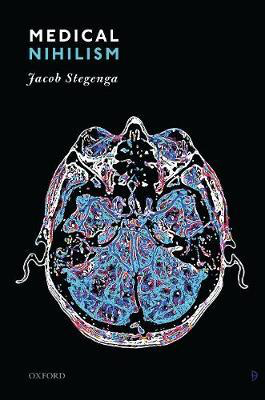
If they’re interested in questions that come up in my book, I think I’d recommend Stegenga’s Medical Nihilism ;
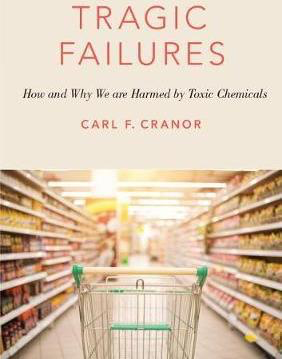
Cranor’s Tragic Failures: How and Why We are Harmed by Toxic Chemicals;
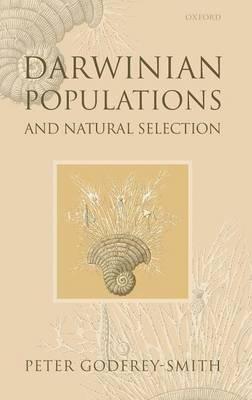
Godfrey-Smith, Darwinian populations and natural selection ;
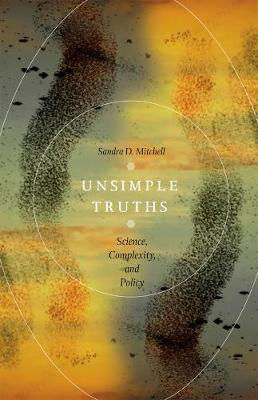
Mitchell, Unsimple truths: Science, complexity, and policy ;
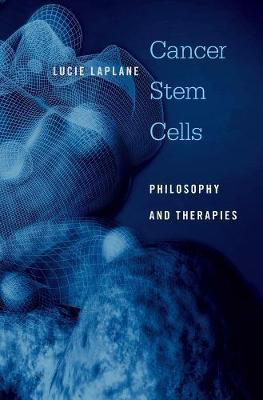
and Laplane, Cancer Stem Cells .
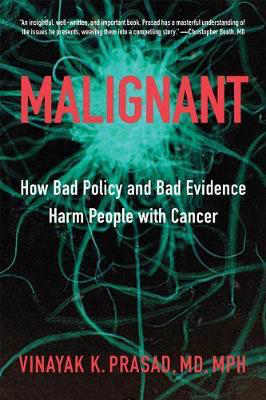
If they want to read books on cancer biology and medicine, that are written by scientists who can write well for the public, I’d recommend Prasad’s recent, Malignant: How Bad Policy and Bad Evidence Harm People with Cancer ,
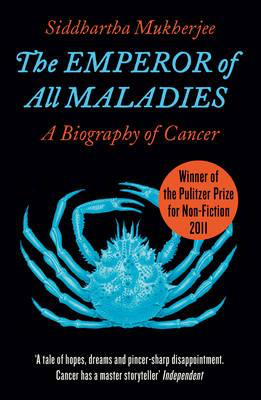
and Mukherjee’s Emperor of all Maladies .
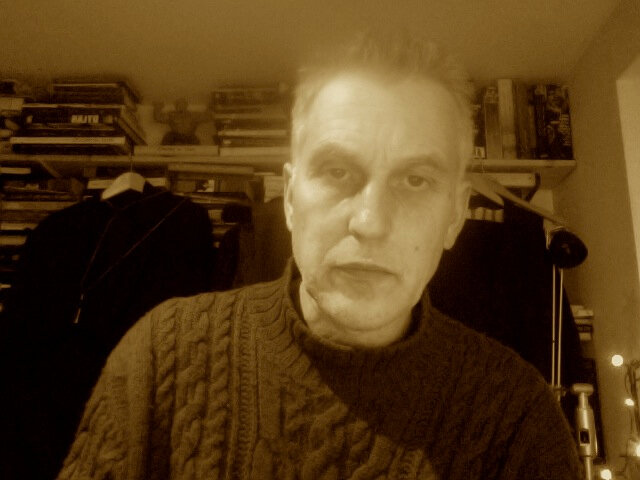
ABOUT THE INTERVIEWER
Richard Marshall is biding his time.
Buy his second book here or his first book here to keep him biding!
End Time series: the themes
Huw Price's Flickering Shadows series.
Steven DeLay's Finding meaning series
Joseph Mitterer's The Beyond of Philosophy serialised
NEW: Reviews of new political books - A Hornbook of Democracy Book Reviews